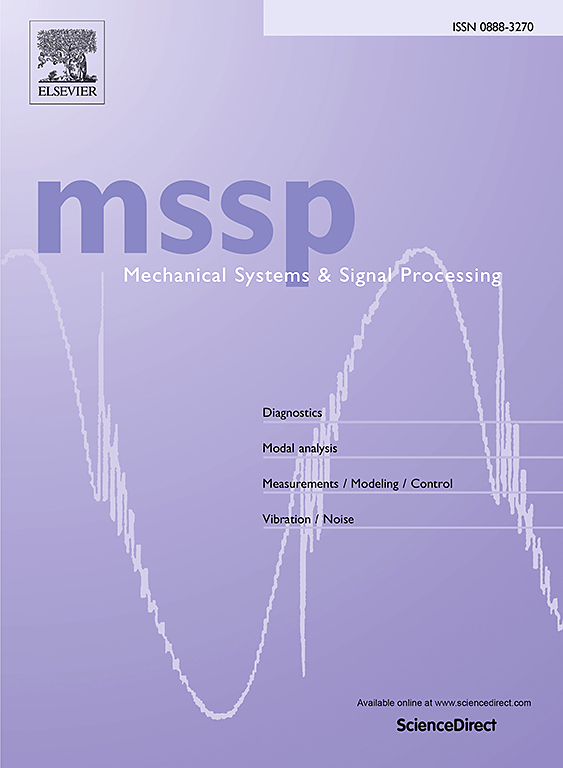Constant-Force kirigami for scalable, shiftable, stair-stepping and static load-bearing quasi-zero-stiffness metamaterials
IF 8.9
1区 工程技术
Q1 ENGINEERING, MECHANICAL
引用次数: 0
Abstract
Quasi-zero-stiffness (QZS) metamaterials, especially those with multiple plateau characteristic, play an important role in vibration attenuation and isolation systems. However, existing design strategies of QZS metamaterials are limited in the programmability of multi-plateau, that its each stair cannot be tailored either arbitrarily or independently. In this study, a new class of QZS metamaterials is proposed by architecting kirigami cells who embodies kinematic limb-singularity principle in mechanisms. Constant-force behavior, with capability of scalable restoring force and shiftable equilibrium position, is revealed in the cells that unified into one specific kirigami cut topology only. Thus, when stacking a family of monolithic cells into QZS metamaterial, stair-stepping performance is unveiled with each plateau being programmed independently by shifting and scaling each corresponding cell. Theoretical model, combined with simulation analysis and experiments verify the multi-plateau QZS characteristics and vibration isolation with static load-bearing capability. This design strategy, from kinematic perspective, offers new programming tool for QZS metamaterials towards customized mechanical response, instability-free kinematics, and structure compactness.
恒力kirigami用于可伸缩、可移动、楼梯踏步和静态承重准零刚度超材料
准零刚度(QZS)超材料,特别是具有多平台特性的超材料,在减振和隔振系统中起着重要的作用。然而,现有的QZS超材料设计策略受限于多平台的可编程性,其每个楼梯都不能任意或独立定制。本文提出了一种新型的QZS超材料,通过构造基里伽米细胞,体现了机构的运动肢体奇异原理。恒力行为,具有可伸缩的恢复力和可移动的平衡位置的能力,揭示了统一为一个特定的基里伽米切割拓扑的细胞。因此,当将一组单片单元堆叠到QZS超材料中时,通过移动和缩放每个相应的单元,每个平台被独立编程,从而揭示了阶梯性能。理论模型,结合仿真分析和实验验证了多平台QZS的特性和隔振性能。该设计策略从运动学角度出发,为QZS超材料的定制化力学响应、无失稳运动学和结构紧凑性提供了新的编程工具。
本文章由计算机程序翻译,如有差异,请以英文原文为准。
求助全文
约1分钟内获得全文
求助全文
来源期刊

Mechanical Systems and Signal Processing
工程技术-工程:机械
CiteScore
14.80
自引率
13.10%
发文量
1183
审稿时长
5.4 months
期刊介绍:
Journal Name: Mechanical Systems and Signal Processing (MSSP)
Interdisciplinary Focus:
Mechanical, Aerospace, and Civil Engineering
Purpose:Reporting scientific advancements of the highest quality
Arising from new techniques in sensing, instrumentation, signal processing, modelling, and control of dynamic systems
 求助内容:
求助内容: 应助结果提醒方式:
应助结果提醒方式:


